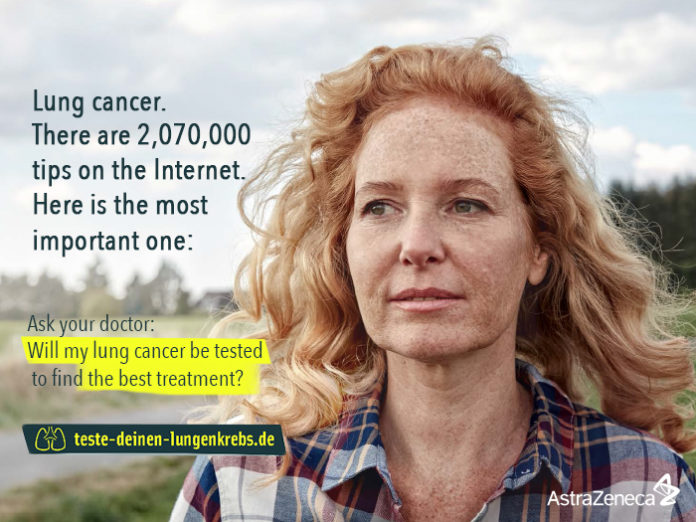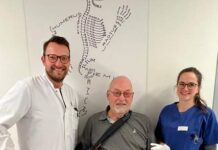
[Advertisement]: When you are diagnosed with lung cancer, your first question is: what is the next step? As is often the case in medicine, there is no universal answer. However, at an advanced stage of illness, the best therapy can be found using a biological tumor test.
Lung cancer is often diagnosed at a late stage when the tumor has already spread. For many patients, that means that surgery does not make sense anymore and long-term healing is no longer possible. Nevertheless, a targeted therapy can bring the patient valuable further years. “Today, there are more treatment approaches than before, and for example with immunotherapy, we have a more personalized medicine. Using a certain molecular understanding of the problem, we can apply a more individual therapy today which was inconceivable some decades ago” says Prof. Dr. Felix Herth, who directs the Thorax Clinic in Heidelberg as Medical Director. At the Thorax Clinic in Heidelberg, the highest number of patients in Germany are treated for lung cancer.
How do lung cancer patients find a suitable, individual therapy?
The good news: Analyzing the data and doing the research is the doctor’s job. Thus, the most important thing for you as a patient is to find a doctor where you feel in good hands. If a non-small lung cancer which has already spread and cannot be surgically removed anymore has been diagnosed, together with your doctor, you can search for the best individual therapy.
How does a biological tumor test work?
You should know that not all cancers are the same when your own lung cancer is examined. There are different kinds of cancer cells, that is why it makes sense to find out as much as possible about them. In a biological tumor test, tumor cells are examined for certain characteristics: the biomarkers. When doctors know the structure of the tumor cell, they can prescribe a therapy that is targeted at the weaknesses of the tumor cell.
As a patient, all you have to do is to talk to your doctor about the test in order to make sure that this diagnostic option has been considered as well. A checklist with relevant questions is available here! If a biological tumor test makes sense, after the collection of tumor tissue, the doctor treating you engages a laboratory to do the test. Usually, additional sampling is not necessary because a biopsy (tissue sample) has already been taken when the lung cancer has been diagnosed. Under certain circumstances, tumor cells in body fluids (from so-called cytological samples, e.g. taken from bronchial secretion) can be sufficient in order to successfully carry out the test. Genetic information about the tumor can also be found in blood, which is also referred to as „Liquid Biopsy“.
What can be tested?
There are different biomarkers which the collected samples can be tested for. In the so-called stain test, the tumor tissue is stained with dyes coupled with antibodies. This supplies the pathologist with important information about the structure of the tumor cells. The so-called „PD-L1-Test“ can already be important when the cancer has not spread yet. A positive result is required for an initial treatment only with immunotherapy. This is because the protein PD-L1 (Programmed Death-Ligand 1) is used as camouflage for the immune system by the tumor cell. Certain medicine can expose these tumor cells and the immune system starts to fight the cancer again.
Another type of test is the mutation test, which can detect modifications of genetic information in the tumor cells. These modifications can lead to uncontrolled cell growth and thus to cancer. This hyperactivity of tumor cells can be stopped in certain cases by means of appropriate medication. For example, the epidermal growth factor receptor (EGFR) can be hyperactive due to a genetic modification which can lead to uncontrolled cell growth. So-called „EGFR tyrosine kinase inhibitors“ can deactivate the EGFR and stop its fatal signals.
What can I do with the test results?
The same applies to the evaluation of the test results and all medical issues: the doctor treating you is the first contact person. He receives the test results from the pathologist and discusses them with the patient. The objective of all efforts is always to find the best individual therapy for the patient.
Further information about the biological tumor test can be found at https://teste-deinen-lungenkrebs.de.
This article was kindly supported by AstraZeneca (DE-24240/20)
Picture ©AstraZeneca
























